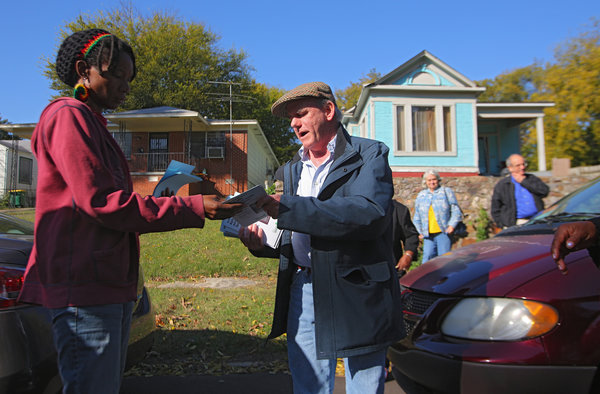Democrats have greatly misunderstood the politics of the minimum wage in a way that hurt them in the 2014 elections.
They’re right about one big thing: Minimum wage increases are popular, at least to modest levels under $10, even in red states where Republican lawmakers have blocked them. Voters in four red states voted on minimum wage increases Tuesday and they all passed, three of them by wide margins. If what Democrats want is a higher minimum wage, they can keep putting the issue on ballots and most likely keep getting their wish.
What fights over the minimum wage did not do is deliver any advantage to Democratic candidates for office. Perhaps the best example of this comes from Illinois. The state has a Democratic governor and a Democratic-held legislature. If Democrats wanted to raise the minimum wage to $10 an hour from its current $8.25, they could have.
Instead, they put an advisory question on the ballot, asking voters for nonbinding guidance about whether the minimum wage should be $10. The idea was to fire up liberal voters by asking about popular Democratic positions; the ballot also included nonbinding questions about taxing millionaires to pay for education and requiring health plans to cover contraception.

All the nonbinding questions passed by wide margins. And the electorate that voted with liberals on the issue questions simultaneously rejected Gov. Pat Quinn, a Democrat, in favor of his Republican challenger, Bruce Rauner, who has mused about cutting the state’s minimum wage. (Mr. Rauner also opposes a millionaire’s tax.)
Here’s the thing about the minimum wage: Most voters don’t live in households where anyone earns it, or are even close enough to it to get a raise when it goes up. If you ask people whether they favor a higher minimum wage, most will say yes, and even vote that way on a binding referendum. But if a politician opposes raising it, middle-class voters won’t necessarily get angry, and their votes may not be moved.
The lesson of Tuesday’s minimum wage votes is that Democrats can do more on the minimum wage, not that they can help themselves politically by talking about it more. Just because a proposal is popular does not mean it can be a keystone in your economic agenda. As Kevin Drum of Mother Jones has noted, Democrats have an economic agenda that is heavily attuned to the poor; it’s much less clear what they would do for the middle class.
Many policies that help the poor are favored by the middle class. But if politicians want to win the votes of the middle class, they have to campaign on issues that affect them directly. Minimum wage increases do not serve that political end.